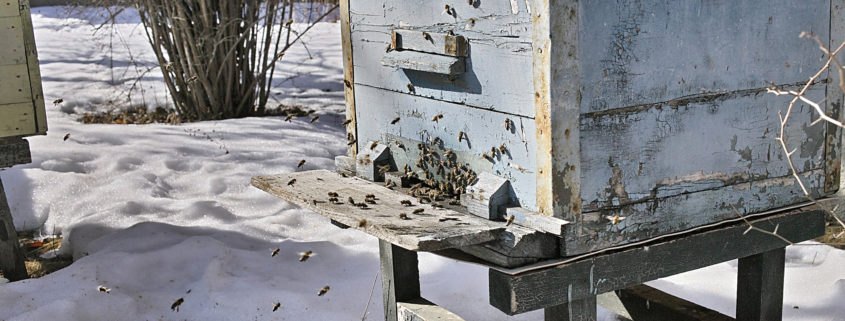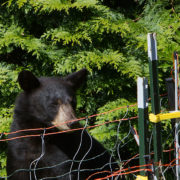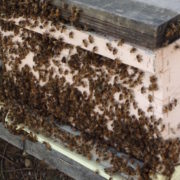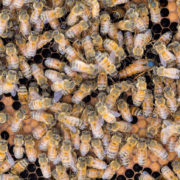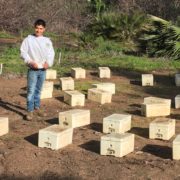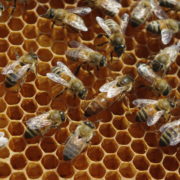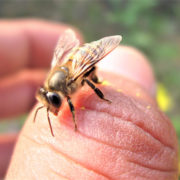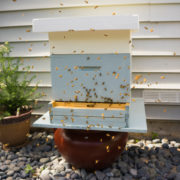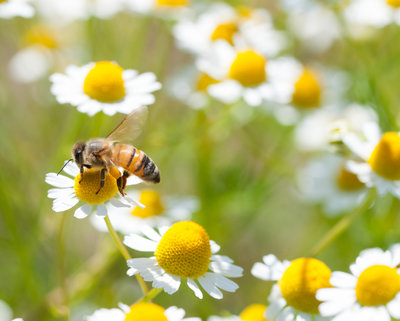Winter Bees
As winter approaches, bringing shorter days and cooler weather, the activity inside a beehive changes. The hive recognizes the coming onset of winter and the queen slows her brood production, eventually bringing it to a complete halt. Drone production completely stops, and any remaining drones are often kicked out of the colony and left to die.
By the time winter arrives, all that will be left inside the hive is a cluster of bees consisting of a queen and worker bees. These overwintering worker bees are actually physiologically different from the typical mid-season honeybees; they are known as “winter bees.”
Winter bees are different from typical worker bees in that they have a lifespan of about six months, whereas typical worker bees only live about six weeks. Winter bees need to live this long, because with no new brood in the pipeline during winter, the colony would completely die if none of the worker bees lasted more than six weeks. To increase their longevity, winter bees maintain larger intrinsic protein stores. In other words, they store extra protein inside their bodies. They also have higher body fat and vitellogenin than worker bees (vitellogenin is a source of nutrients that honeybees use to produce feed for larvae).
Winter bees are typically raised during September or October, give or take, depending on the particular climate of the area. They are usually last of the brood that a colony produces in the autumn. This is why it is important that a conscientious beekeeper needs to make sure that a colony is well fed with pollen or pollen substitute heading into the autumn and winter. Not only do the winter bees themselves need to be healthy and strong, but the last set of regular worker bees also needs to be healthy and strong, because they are the ones who will feed the winter bees when they are still larvae.
Interestingly, once the winter bees make it through the winter and the colony heads into the new season, some of the old winter bees need to temporarily take on the role of nurse bees to the first round of brood in the spring. Why? By the end of winter there are no young bees remaining in the colony! This is the only time in a colony’s life where six-month old bees have to assume the responsibility of what is normally handled by six-day old bees.
Wildflower Meadows would like to thank all of our friends and customers for a successful 2018.
We wish you all a happy and joyous holiday season!

